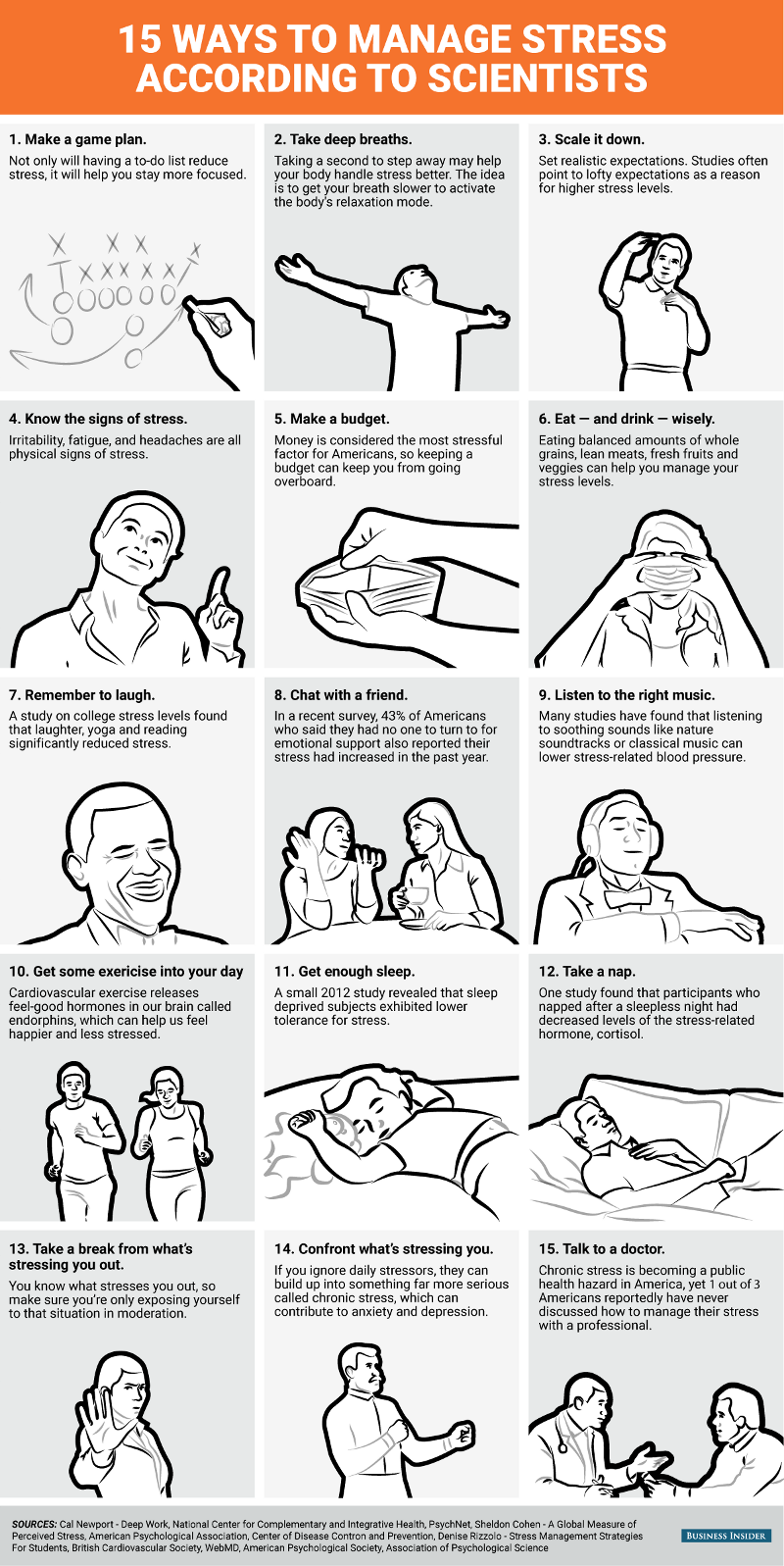The best stress-relieving techniques are deep breathing and physical exercise. Stress is a common part of everyday life, and finding effective ways to manage it is crucial for maintaining overall well-being.
Deep breathing exercises and engaging in physical activity have been shown to be effective in reducing stress levels. Deep breathing promotes relaxation by slowing down the heart rate and calming the mind, while exercise helps release endorphins that improve mood and reduce stress.
These techniques can be easily incorporated into daily routines to help alleviate stress and promote a sense of calm and balance.

Credit: www.nivati.com
The Importance Of Stress Relief
Stress relief is crucial for maintaining overall well-being and promoting a healthy lifestyle. The impact of stress on our physical and mental health cannot be understated. When we experience stress, our bodies release hormones that can lead to a range of negative effects, such as increased heart rate, muscle tension, and impaired immune function. Stress can also contribute to mental health issues such as anxiety and depression. By incorporating stress-relieving techniques into our daily routines, we can reduce the negative impact of stress on our bodies and minds. Some benefits of stress relief include improved sleep quality, enhanced mood, increased focus and productivity, and stronger immune function. Whether it's engaging in physical activity, practicing mindfulness and meditation, or enjoying a hobby, finding stress-relieving techniques that work for you is essential for leading a healthy and balanced life.

Credit: vmedo.com
Physical Techniques
Discover effective stress-relieving techniques using physical methods like yoga, deep breathing exercises, and mindful meditation. These techniques help reduce stress, promote relaxation, and improve overall well-being.
Exercise and Physical Activity: Engaging in regular exercise can help reduce stress levels. Whether it's going for a walk, running, or practicing yoga, physical activity releases endorphins, which are natural mood boosters. Find an activity you enjoy and make it a part of your daily routine.
Deep Breathing and Meditation: Take deep breaths in and out, focusing on your breath. This practice helps slow down your heart rate and activates your body's relaxation response. Meditation can also calm your mind and improve concentration. Find a quiet place and spend a few minutes each day practicing deep breathing or meditating.
Progressive Muscle Relaxation: This technique involves tensing and relaxing each muscle group in your body, one at a time. Start with your feet and work your way up to your head. This process helps release tension from your muscles and promotes physical relaxation.
Mental And Emotional Techniques
Mental and Emotional TechniquesJournaling and self-reflection help alleviate stress by allowing individuals to express and process their emotions in a safe and private manner. Taking the time to write down thoughts, feelings, and experiences can provide a sense of clarity and release. Practicing mindfulness, such as focusing on the present moment and acknowledging any negative thoughts without judgment, can also be effective. Additionally, engaging in mind-wandering activities, such as daydreaming or letting the mind wander freely, can offer a break from stressors and promote relaxation.
Engaging in Hobbies and Creative OutletsEngaging in hobbies and creative outlets can be an excellent way to relieve stress. Spending time on activities that bring joy and fulfillment can distract the mind from worries and provide a sense of achievement. Whether it's painting, playing an instrument, gardening, or cooking, finding a creative outlet helps to channel stress into something positive. Hobbies also offer opportunities for personal growth, increased self-confidence, and building social connections. It's important to prioritize self-care and make time for activities that bring happiness and calmness to our lives.

Credit: brandongaille.com
Frequently Asked Questions For The Best Stress-relieving Techniques
Q: What Are Some Simple Stress-relieving Techniques?
A: Simple stress-relieving techniques include deep breathing exercises, practicing mindfulness, going for a walk in nature, engaging in hobbies, and spending time with loved ones. These activities can help relax the mind and body, reducing stress levels effectively.
Q: How Does Exercise Help In Relieving Stress?
A: Exercise helps in relieving stress by releasing endorphins, which are known as "feel-good" chemicals. Engaging in physical activity also helps improve mood, reduce anxiety, and promote better sleep, all of which contribute to overall stress reduction.
Q: Can Listening To Music Help Alleviate Stress?
A: Yes, listening to music can alleviate stress as it has a soothing effect on the mind and body. Slow-tempo music, classical tunes, or peaceful melodies can help calm the nervous system, lower heart rate, and relax muscles, ultimately reducing stress levels.
Conclusion
To effectively tackle stress, it is vital to explore various techniques and find what works best for you. Whether it's engaging in regular physical exercise, practicing mindfulness and meditation, or seeking support from loved ones, taking proactive steps to manage stress is crucial for overall well-being.
Remember, self-care should always be a priority, allowing you to navigate life's challenges with a clear mind and a healthy body. Embrace these stress-relieving techniques and create a more balanced and peace-filled life.
Comments
Post a Comment